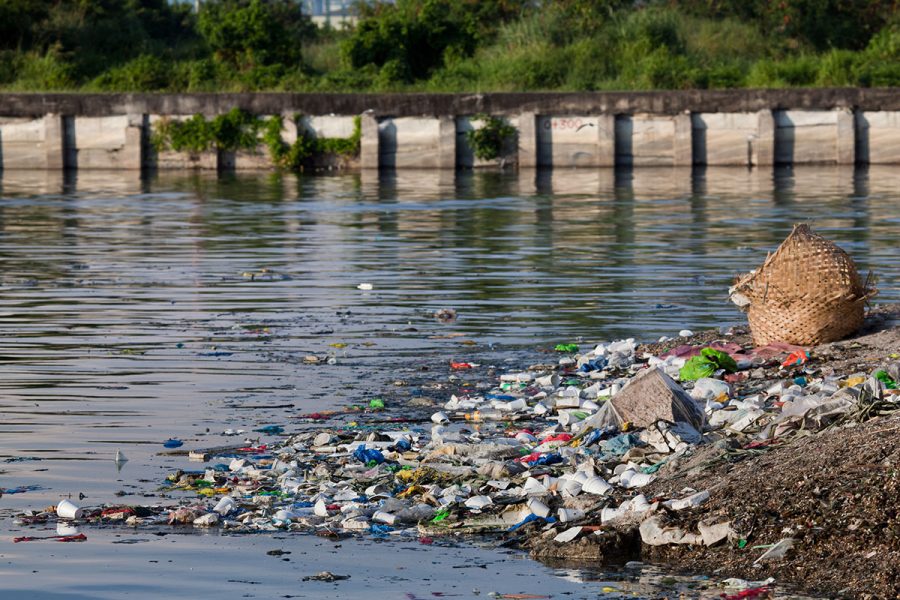Banning plastic straws isn’t going to save the environment
How can one person make a difference in the climate change debate?
More stories from Hannah Angell
Photo by Can Stock Photo
Pollution goes beyond just plastic straws and grocery bags, but small lifestyle changes can make waves.
“Paper or Plastic?” I hate hearing those words because that’s when I’ve realized I left my reusable bags at home. Again.
I like to believe I’m “eco-conscious”, but I question what that means as a college student. How can one singular voice make a difference? I’m all for reusable water bottles and the sudden trend to stop the use of straws at restaurants. Recently on social media there’s been talk about saving the sea turtles by simply saying no to straws.
Ultimately, I know that one voice alone saying no to a single straw packaged by the hundreds isn’t going to save the sea turtles. How did a consensus of environmentalism start a conversation — when straws are the least of our worries?
According to a study conducted, marine pollution isn’t based solely on the use of plastic straws. A counterpoint to the ban is for the rights of people with certain disabilities. People with disabilities say plastic straws are the best option compared to reusable or alternative straws for people with limited mobility.
Activists are hopeful that the ban of straws will kick start a bigger conversation of plastic. I’m hopeful that from the trend of saying no to straws will lead to people learning more about consumerism and how to be eco-conscious.
The trend brought a common voice of people through social media, which made its way to corporate companies. In 2018 — Starbucks, Disney and McDonald’s started a ban on plastic.
In July of 2018 Disney announced that by mid-2019, they will be eliminating plastic straws, except for their location in Tokyo, according to their website.
“We’re removing plastic straws in our stores globally by 2020 — reducing more than one billion plastic straws per year from our stores,” Starbucks tweeted on July 9.
“McDonald’s is committed to using our scale for good and working to find sustainable solutions for plastic straws globally.” McDonald’s executive vice president for global supply chain and sustainability stated.“We hope this work will support industry-wide change.”
Disney, Starbucks and McDonalds’ ban isn’t going to save the sea turtles either. The estimated 5.25 trillion plastic particles (weighing 269,000 tons) floating in the sea isn’t going to be fixed overnight. Regardless, we should implement bans anyways.
The discussion of plastic and our oceans has been started among politics and big business in the United States because of the common voice started from social media. Where does one college student fit in?
How can one help the environment and make a difference? Be conscious of shopping habits. Know how to recycle properly. Ask “it is recyclable material?” Switch to boxes, not bottles. Buy your laundry detergent and dish soap in boxes instead of plastic bottles. Boxes are easier to recycle.
As a college student, I’m always trying to find the cheaper options, save money and look for alternatives, which tend to be more environmentally friendly.
Contacting your congresspeople can be a proactive steps towards implementing plastic bans. Or simply say no to straws if you can and bring reusable bags. Every voice matters in the fight to stop climate change.
Angell can be reached at [email protected].

